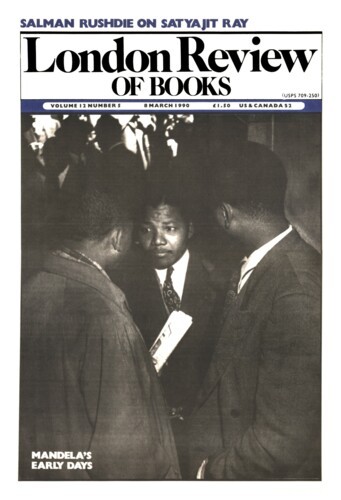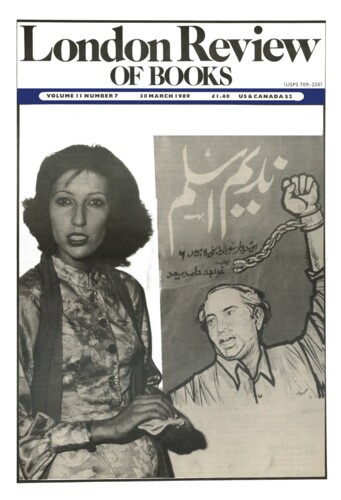India for the English
Rajnarayan Chandavarkar, 8 March 1990
The history of the British Raj is emotional, complex and controversial. It invokes guilt and shame, nostalgia and pride, for diferent reasons, in Britain as well as in India. It represents not merely a relic of the past but a vibrant, self-generating, living myth. Its collective memory, images and symbols have proved indispensable to the definition of Englishness, or perhaps Britishness. In the ‘sceptical’ 1960s, Trevor Royle tells us, some people considered the British Raj a ‘shameful thing’, and ‘the idea of empire was met with derision by younger intellectuals’; now, in the Eighties, happily liberated from guilt, ‘people want to know … why the privilege of being British has been so absolute,’ and ‘the benefits of empire … are being examined again with interest and, let it be said, not a little pride.’


